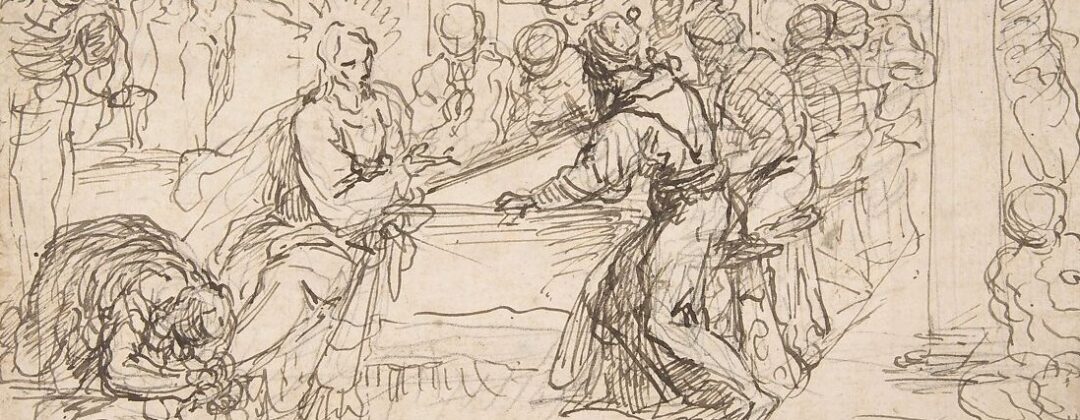“Every time society has given it a chance, it’s been shown that talent exists in previously despised populations. . . . Over and over again, it’s been shown that an ordinary sampling of the population, including those considered inferior or hopeless, contains men and women of rare intelligence, wit, and ability.”
—Kevil Starbridge Mahoney, in Elizabeth Moon, Against the Odds
For a military science fiction adventure, Elizabeth Moon’s novel Against the Odds is remarkably rich in reflection; the scene from which this quote was taken is one outstanding example, but not the only one. Though the focus of this scene is on the distribution of human talent, the same is true of human character. Any ordinary sampling of the population, provided it’s large enough, will contain men and women of rare integrity, humility, and selflessness—and others who are their moral opposites.
The key word there, of course, is “ordinary”; if we consider populations which are selected for specific characteristics in some way, things will be skewed accordingly. Professional basketball players are taller on average than the normal run of people. Serial killers as a group are presumably worse people than average. Neither group is representative of the human race as a whole—both are out of the ordinary in some way. They are skewed samples by definition.
In an ordinary sampling, however—one which is not selected for a particular characteristic or extreme behavior pattern—any sufficiently large group of people will be much the same as any other sufficiently large group of people, both in the distribution of physical and mental gifts and in the range of their character. Each group will have its geniuses and its people of below-average intelligence; its profiles in courage and its exemplars of cowardice; its brilliant musicians and its tone-deaf music haters; and each group will have its saints, and each group will have its servants of death.
Having been ordained to pastoral ministry almost nineteen years ago, I could hope that the American church would qualify as an extraordinary group of people, but I know better. There are certainly great saints in many of our congregations, but there are also those who have joined the church for all the wrong reasons. They may value the church as a social club, or as a good place for networking; or, sadly, they may have worse motives. Some find a congregation where they can take power and exercise control; others are abusers who have identified a given congregation as a good hunting ground. To our shame, some in all these groups are pastors. The false shepherds of Ezekiel 34 who use the sheep as a source of meat and wool are still very much with us.
When revival comes, that will change; and for now, as the cultural acceptability of Christianity sinks slowly in the West, perhaps that will change things somewhat as well. What will not change is the reality that someone’s outward profession of belief doesn’t actually guarantee anything about the inward reality of that person’s heart. What someone says doesn’t tell us why they said it, and so we will always be vulnerable to imposters, poseurs, opportunists, and other liars. As such, though we should be grieved when people who call themselves Christians do vile things, we shouldn’t be surprised. For one thing, of course, though we are being saved, we still have great darkness in our hearts; and for another, Jesus knew full well—and warned us—that there would be those in his church who were not truly of his church. (As the late Keith Green put it, “going to church doesn’t make you a Christian any more than going to McDonald’s makes you a hamburger.”)
All of this said, while the church needs to remember that it has no right to think of itself as better than any other group of people, I think this lesson is needed more urgently somewhere else: in our political parties. At least in America, on my read, one of the great driving forces of our politics is an assertive feeling of positional moral superiority: the belief that I am morally superior because I believe what I believe, and so are those who disagree with me. The corollary, of course, is that those who disagree with me are on that basis my moral inferiors, and can thus be assumed to disagree with me for morally reprehensible reasons.
Not to put too fine a point on it, this is a lie from the pit of Hell.
The truth of the matter is, both the Republican and Democratic parties (or, as I tend to think of them these days, the Red Tribe and the Blue Tribe) contain the full range of people, from those whose motives are of the best to those who are modern-day Thénardiers. We can hold our opinions for reasons which are morally admirable or morally abominable without it changing our professed arguments for those opinions one whit. Our belief to the contrary isn’t rooted in evidence, it’s rooted in the fact that the feeling of moral superiority is powerfully addictive. The desire to look down on other people is one of the oldest and ugliest of all temptations—an emotional drug with very few equals. Sadly, our political culture is so high on it, it will probably take a work of the Holy Spirit to bring us down.
This is a major reason why my political agenda these days boils down to one sentence: pray for revival.
Photo ©2019 Vladimir Morozov. License: Creative Commons Attribution 4.0 International.
















 I appreciate Elena’s added emphasis on healing.
I appreciate Elena’s added emphasis on healing.